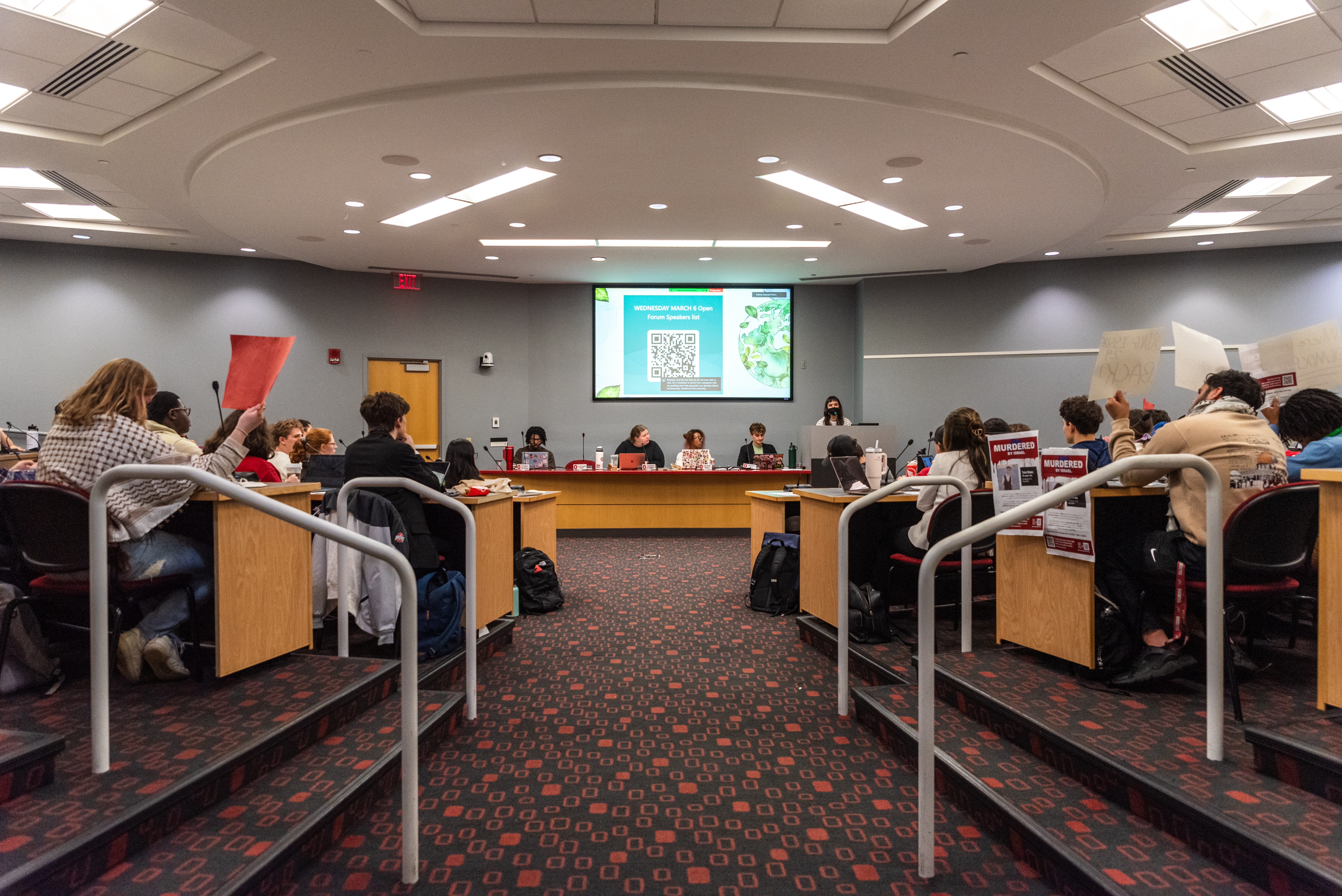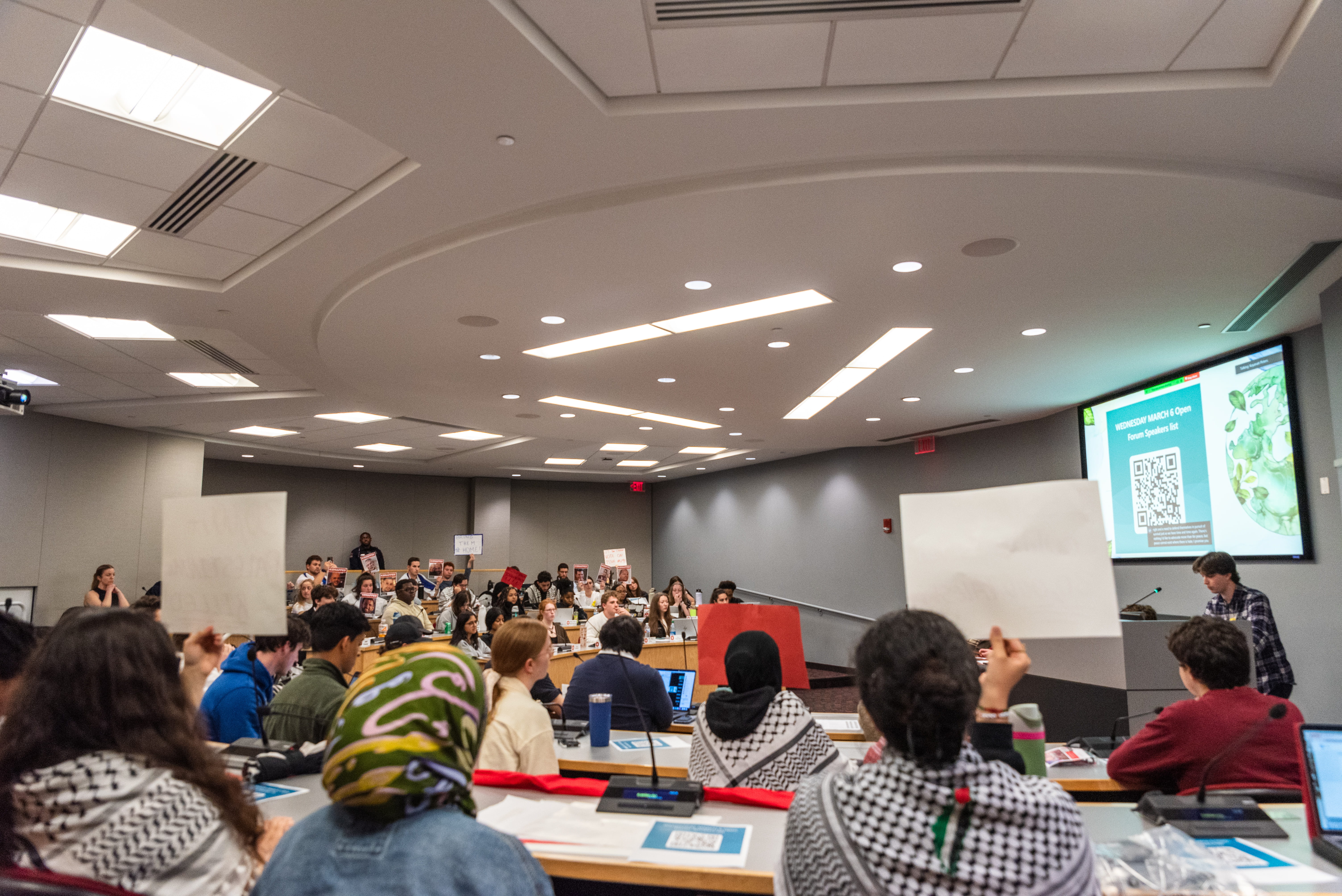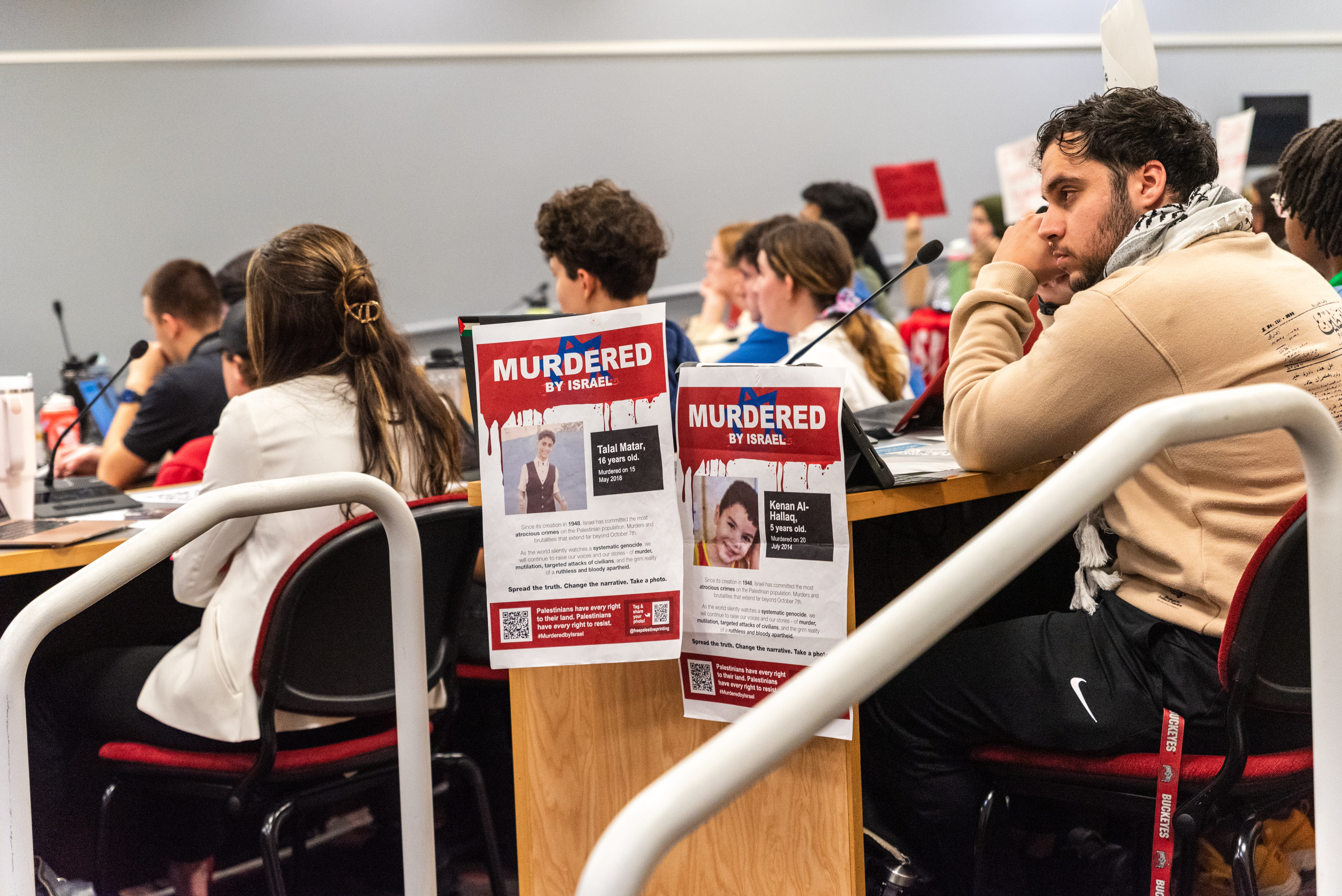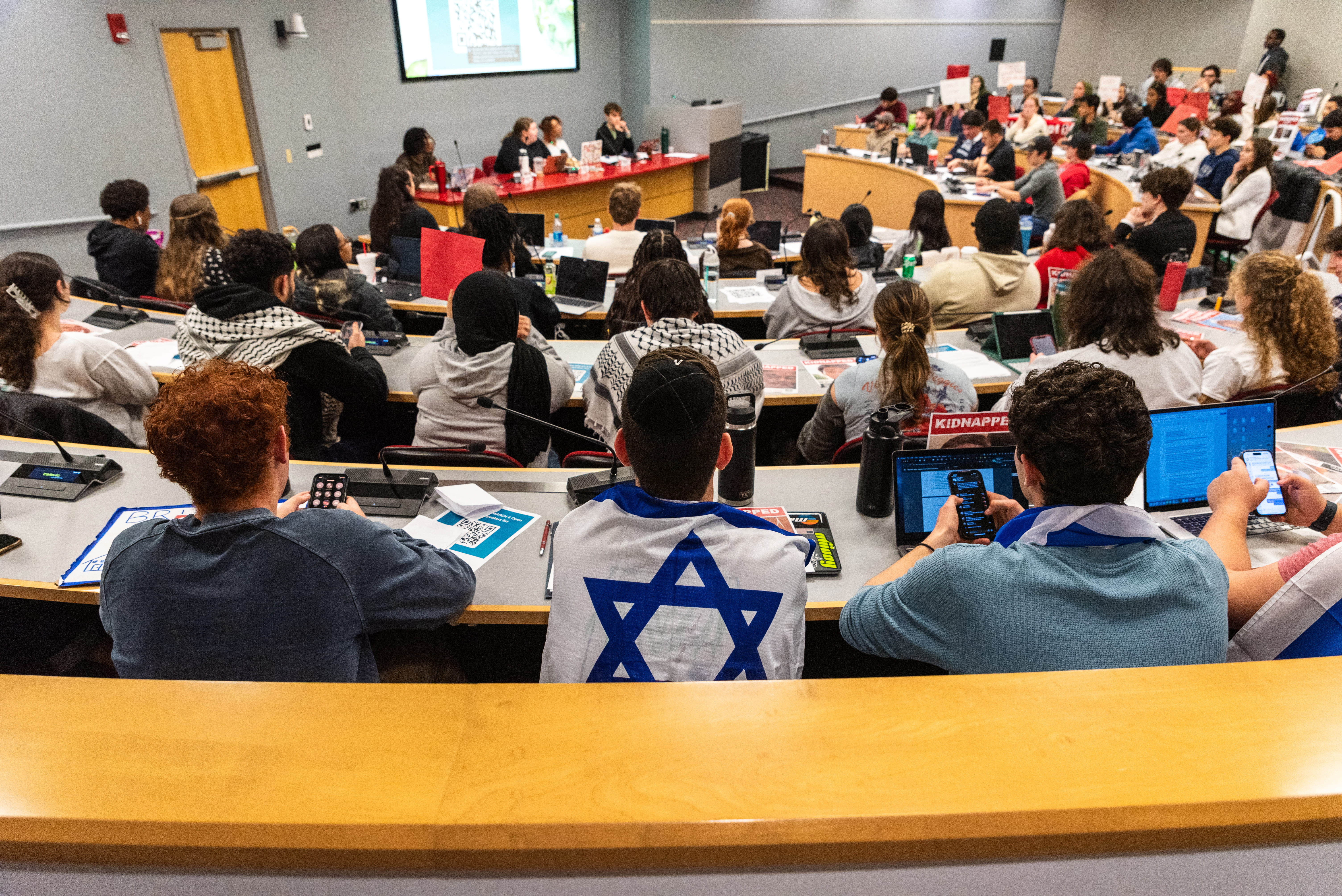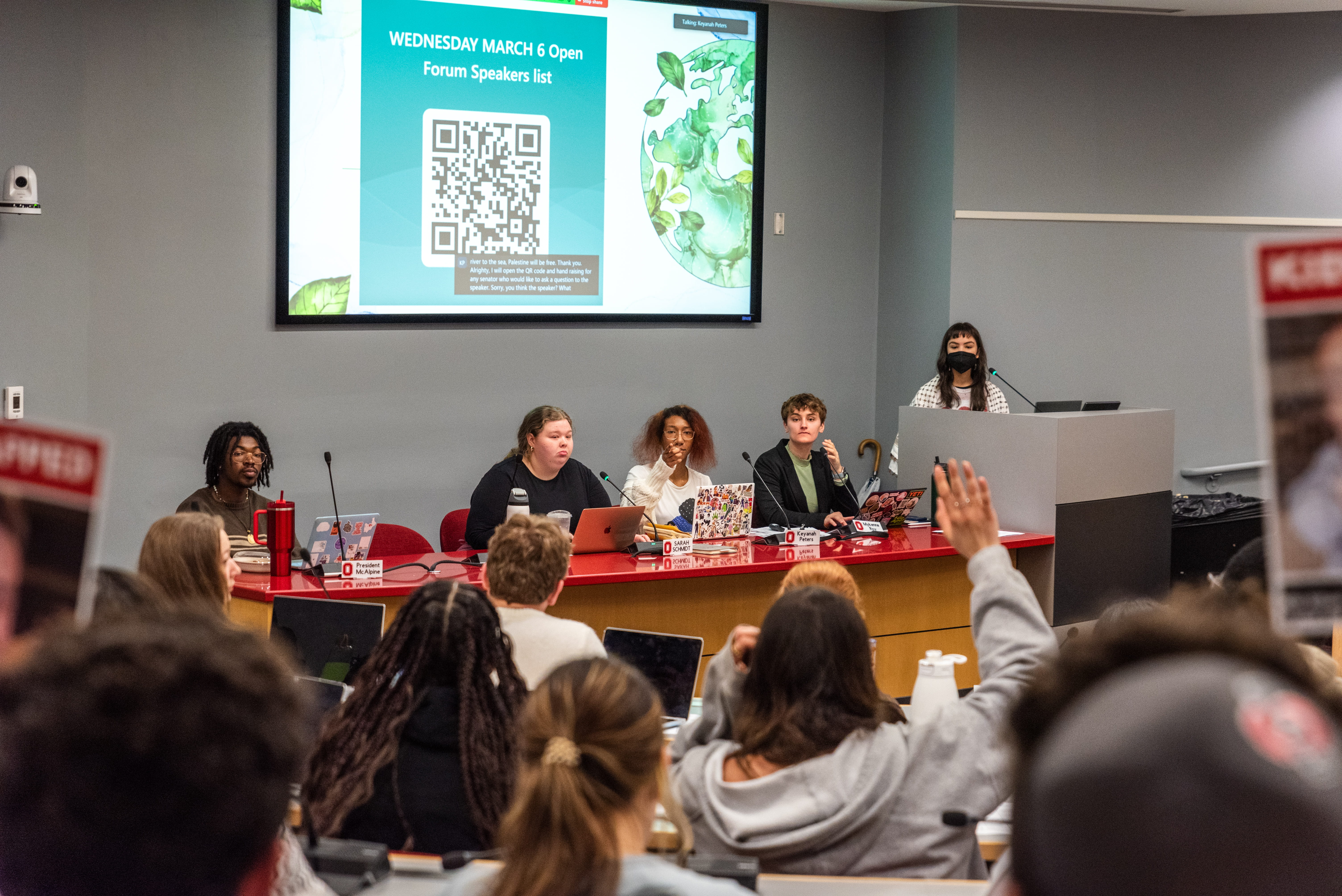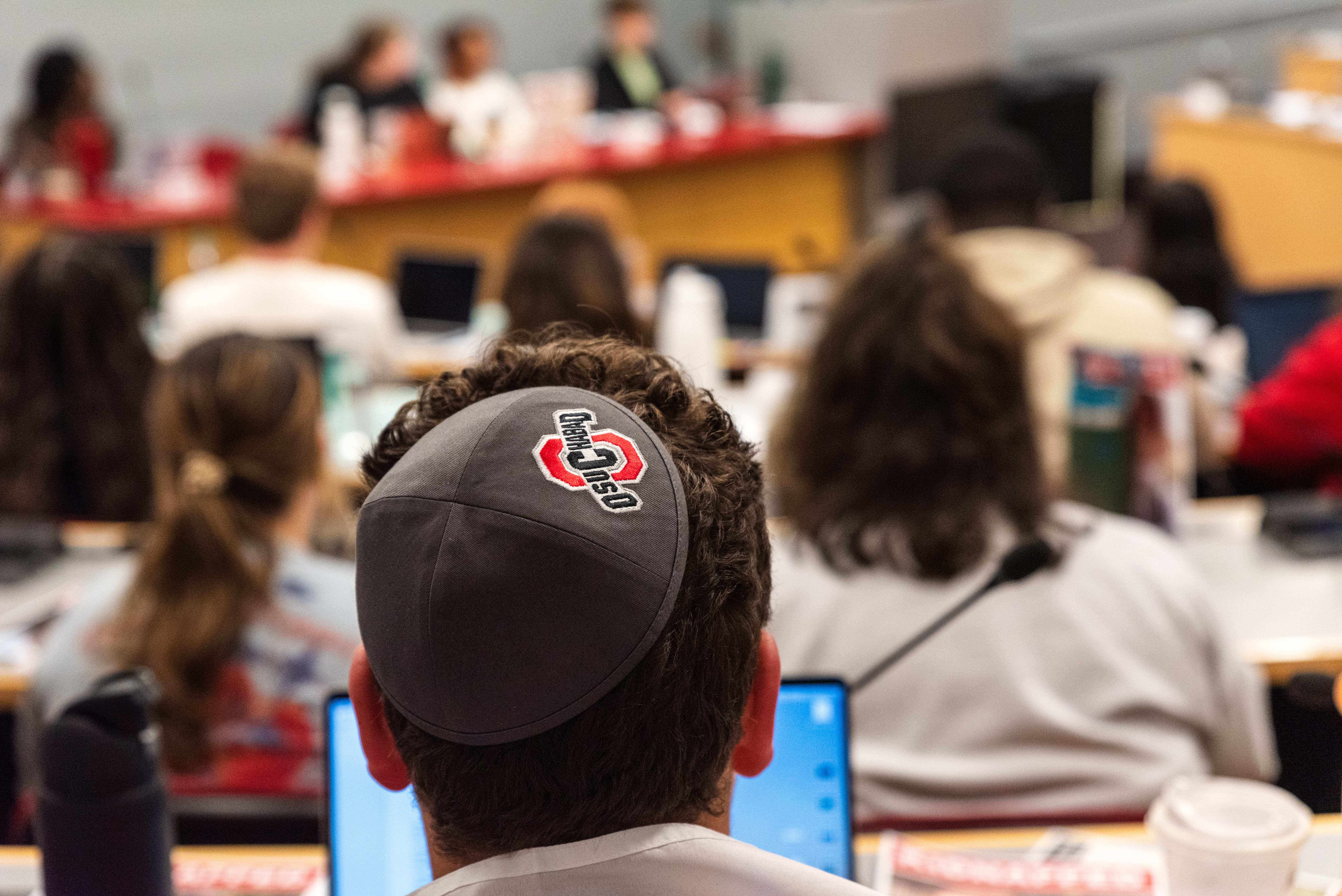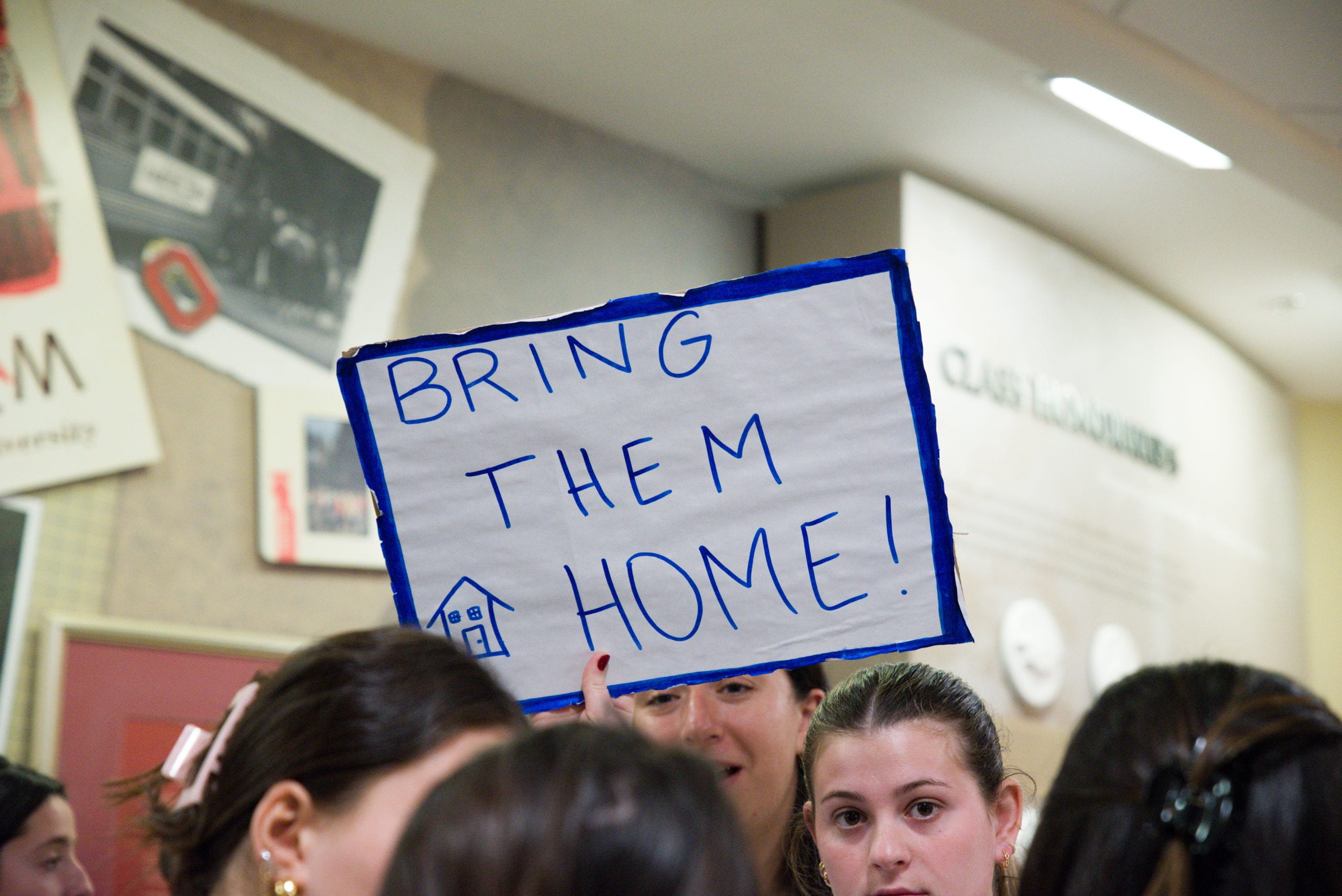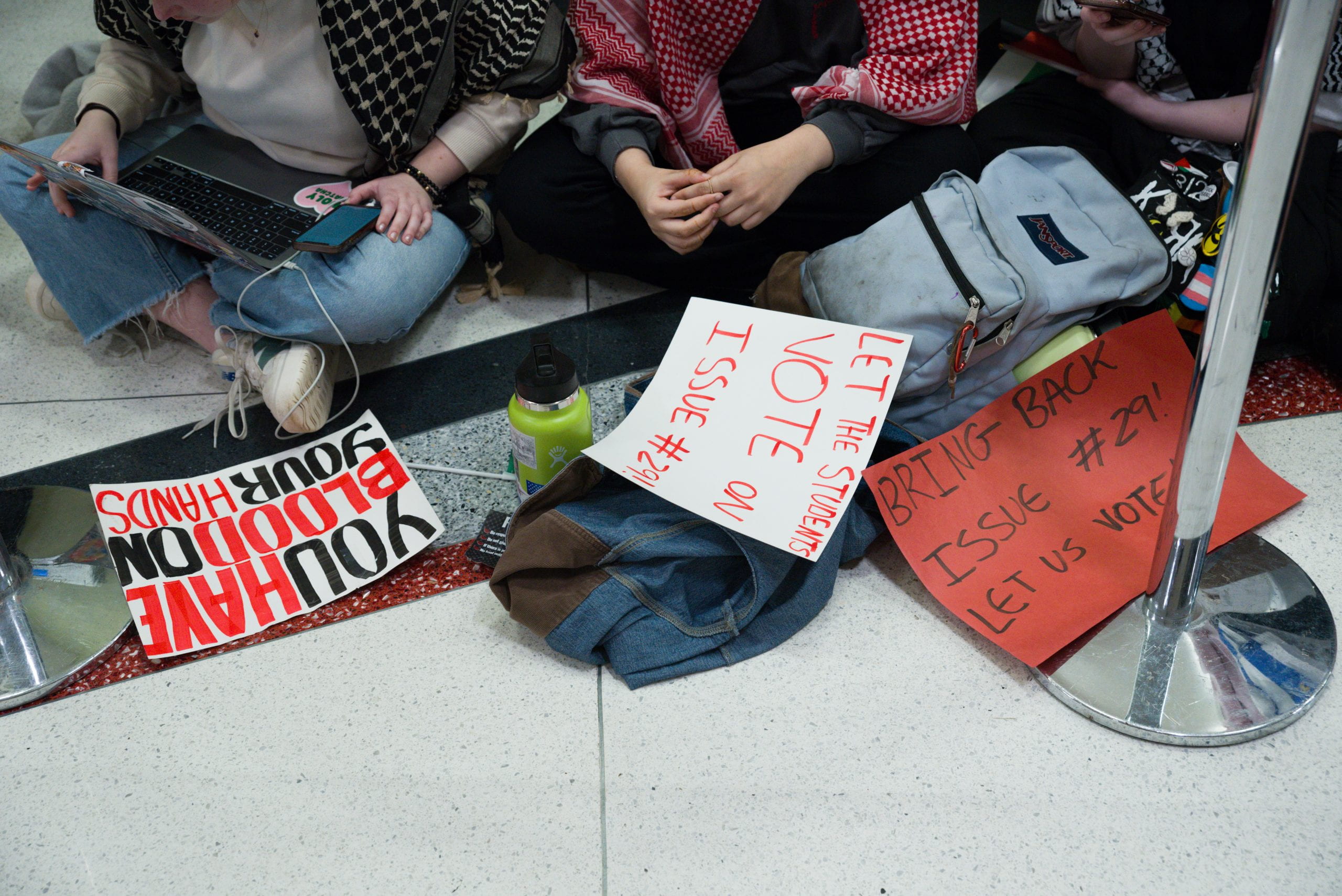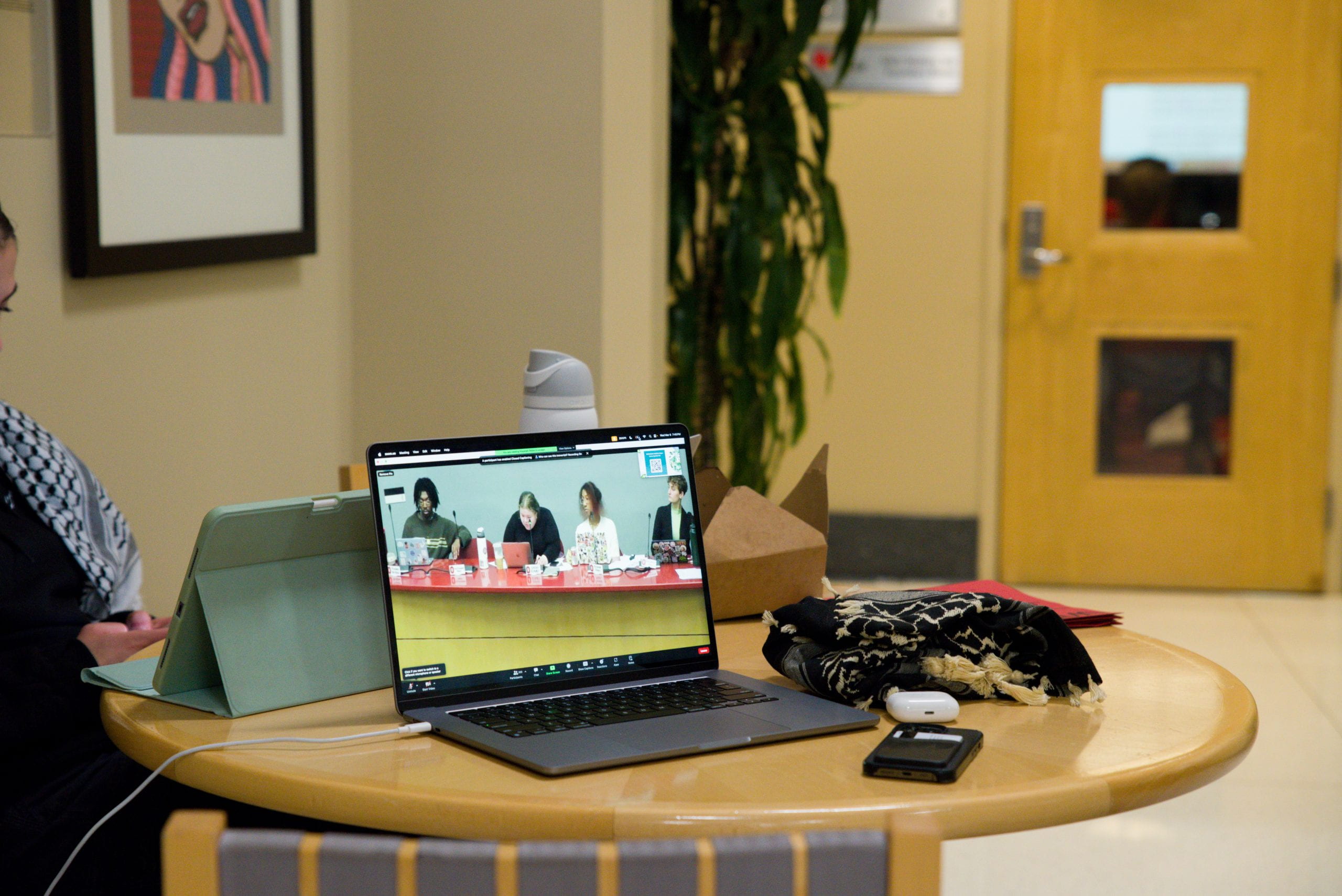Over 300 students lined up outside of Ohio State’s Undergraduate Student Government meeting Wednesday after Ohio State paused voting on the group’s ballot initiative calling for the university to “divest from companies profiting from human rights violations.”
The chambers, which have a capacity of 76, were filled with students looking to speak for or against the initiative. The meeting lasted for over four hours with 68 public comments until USG Speaker Sarah Schmidt adjourned and said students who did not get to speak could return to USG’s next open forum meeting on March 20.
Of the students who spoke, almost 40 supported the initiative or admonished the university for pausing the voting while at least 15 students — many wearing stickers that said “152” to symbolize the number of days that passed since Hamas, the militant group that governs Gaza, attacked Israel on Oct. 7, 2023 — spoke in opposition of the initiative or the boycott, divest and sanction movement at large.
Most students in support of the initiative called upon USG and the university to hold a special election as soon as possible. Among these students was Chika Nkowcha, a fourth-year in biomedical engineering, who said that the university has never “acknowledged the atrocities that have happened against the people of Palestine.”
“Denial of [the initiative] is an exact disservice to Ohio State students,” Nkowcha said.
Zoë Van Gyseghem — a fourth-year in African American studies and women’s, gender and sexuality studies — said Ohio State’s administration is “systematically silencing and thus failing its student body.”
“We demand an open vote on Issue 29,” Van Gyseghem said. “Or, if this is in fact not an institution that honors democratic processes, then at least have the integrity to tell us that we have no say in how this university is run and then have the decency, for [administration], to claim responsibility for their own actions. If [administration] has already decided that our voices do not matter and that only the voices of their financial donors matter, then there’s nothing to lose in openly stating the truth publicly.”
In opposition, Sophia Starr, a second-year in the School of Environment and Natural Resources, said the initiative will increase antisemitism and hate at Ohio State towards Jewish students, and only worsen the hostility the community has faced on campus since the start of the most recent Israel-Hamas war.
“It is a measure of the hateful surroundings my ancestors endured that is now mine to experience. I now realize the pre-Holocaust panic that my ancestors felt when anti-Jew speech became the norm,” Starr said. “We must reject BDS.”
Similarly, Sadie Klaff — a second-year in psychology and board member of the Schottenstein Chabad house — said passing the BDS initiative will do nothing to help those suffering from the war.
“But it will align our campus with a terror organization that is responsible for this war,” Klaff said. “Everyone in this room wants to see the tragedy of this war end. The only way it’s going to end is for the hostages to be released and Hamas to surrender. BDS is not the answer.”
Aside from disagreement on the voting process and injustice in the Israel-Hamas war, several people raised concerns about what investments the group is targeting.
According to a Feb. 7 Instagram post by OSU Divest, the group is urging the university to cease and/or prohibit investments in several companies, including Caterpillar, an equipment manufacturer, and Hewlett-Packard Enterprise, an information technology company.
Ohio State has had co-op programs with both companies. In 2019, Caterpillar had a Parallel Co-op Program with Ohio State that allowed students to work remotely for Caterpillar. The same year, Ohio State also launched a 10-year data partnership with Aruba, a Hewlett Packard Enterprise company to increase “interdisciplinary data research and teaching.”
Caterpillar has been accused by human rights organizations, such as Amnesty USA, of allowing their equipment to be used by Israeli authorities to demolish Palestinian homes and destroy agricultural products, land and water pipes needed for basic survival.
Ohio State spokesperson Chris Booker said the university generally invests in funds rather than individual companies, but specific investments are protected as trade secrets.
“Ohio State utilizes a diversified investment strategy to grow the resources available to support our academic mission, such as student scholarships, faculty positions and educational resources,” Booker said in an email. “The university follows all applicable laws regarding investments, including state laws specifically addressing this issue. Ohio State’s endowment is not funded with tuition or fees.”
The university’s pause on voting Monday was the second interruption in the ballot initiative’s process. The initiative was first removed Feb. 23 by USG because of alleged bylaw violations by OSU Divest, a branch of Ohio State’s chapter of Students in Justice in Palestine, who gathered signatures to put the issue on the ballot.
After OSU Divest filed for an appeal, the initiative was placed back on the ballot Sunday evening and voting opened Monday at noon, initially planned to close Wednesday at 11:59 p.m.
According to Jineen Musa, a second-year in health information systems and outreach chair for Students for Justice in Palestine, the initiative was on the ballot 12 hours after voting started, but was removed by the university after 1 a.m. Tuesday night.
According to university spokesperson Ben Johnson, the USG Judicial Panel will hold a special hearing where all parties can present additional information and a new review will take place. Voting has been paused until an outcome is reached from the hearing.
“Given the communication by the Undergraduate Student Government Judicial Panel that procedural errors and mistakes have taken place, the university acted to ensure a fair and equitable process is preserved by pausing the ballot initiative while the forthcoming hearing takes place,” Johnson said in an email.
According to previous Lantern reporting, this issue has come before USG at least three times in the last 10 years, seen in 2015, 2018 and 2022.
In 2015, OSU Divest attempted to place the divestment initiative on the ballot, only to have it thrown out by the Judicial Panel due to similar alleged bylaw violations today’s initiative faced. Acknowledging procedural errors, the Judicial Panel decided to hold a special election for the ballot initiative, prompting threats of impeachment due to concerns of an “abuse of power and position” that subsequently caused three justices to resign.
The voting suspension comes after both OSU Divest and Ohio State Hillel accused USG of bylaw violations and procedural errors.
Bobby McAlpine and Madison Mason, president and vice president of USG, respectively, released a statement saying that the executive branch has no involvement in elections, campaigns and ballot initiatives and that the decision to strip Issue 29 from the ballot for the second time, halting public voting, was of the university.
“Moving forward, the Judicial Panel will conduct a hearing process under the newly appointed Chief Justice, which is anticipated to occur as soon as bylaws and scheduling allows,” the statement said. “Should the Judicial Panel decide that the issue should be on the ballot, there will be a special election specifically for this issue later this semester.”

